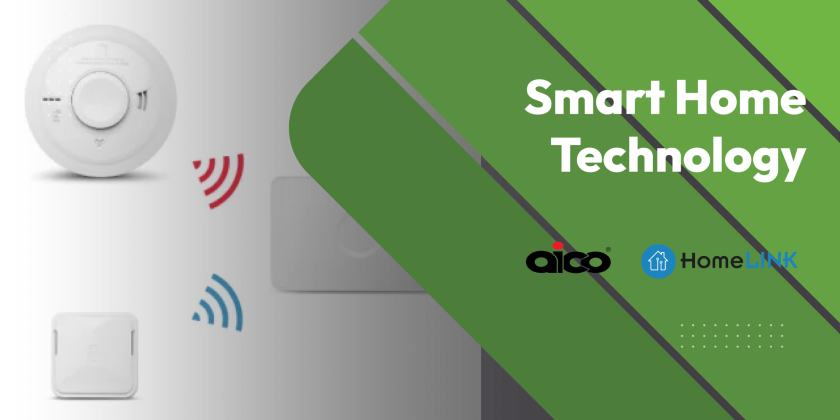As the world moves towards renewable energy, more homeowners are considering the benefits of solar power to reduce their carbon footprint and cut energy costs. However, the process of selecting a reliable solar panel installer can be daunting, with many factors to consider to ensure a successful and efficient installation. In this practical guide, we’ll walk you through the essentials of how to choose a solar panel installer. From assessing experience and reputation to understanding warranties and financing options, we’ll provide you with the knowledge you need to make an informed decision. Let’s dive into the key steps of securing a trustworthy solar panel installer for your home.
Understanding Your Solar Needs
Assessing Energy Consumption
Before choosing a solar panel installer, it’s crucial to understand your home’s energy consumption. Start by reviewing your electricity bills over the past year to identify your average monthly and annual usage. This will give you a clear picture of how much energy you typically use, helping you determine the size of the solar panel system you’ll need. Additionally, consider any future changes that might affect your consumption, such as adding new appliances or planning home extensions. These changes can impact the scale of the system required. Understanding your energy needs ensures you don’t overspend on an oversized system or fall short with an undersized one. Accurate assessment of energy consumption is a pivotal step in how to choose a solar panel installer that can meet your specific requirements and help you achieve optimal efficiency and savings.
Evaluating Roof Suitability
When considering solar panel installation, it’s essential to evaluate your roof’s suitability. Not all roofs are ideal for solar panels, so start by assessing the roof’s age and condition. A roof nearing the end of its lifespan might need repairs or replacement before installing panels. Consider the roof’s orientation and angle as well. South-facing roofs are optimal in the UK due to maximum sun exposure, while east or west-facing roofs may require more panels to achieve similar energy production. The roof’s pitch should ideally be between 30 to 45 degrees for optimal efficiency. Additionally, check for any obstructions such as chimneys or trees that might cast shadows, reducing the system’s effectiveness. Understanding these factors will guide you in how to choose a solar panel installer equipped to handle any potential challenges your roof might present, ensuring a seamless and effective installation process.
Setting a Budget Framework
Establishing a budget framework is a vital step in understanding your solar needs. Begin by determining how much you’re willing to invest upfront and consider the potential long-term savings on your energy bills. Research the average costs of solar panel systems in your area to gain a realistic expectation of pricing. It’s important to factor in additional expenses such as maintenance, installation fees, and any necessary upgrades to your home’s electrical system. Look into available incentives and rebates that could reduce the overall cost. Consider financing options if upfront costs are a concern; many installers offer payment plans or lease agreements. Setting a clear budget helps streamline the decision-making process and aids in how to choose a solar panel installer who can provide the best value within your financial constraints. A well-planned budget ensures you can achieve both energy savings and return on investment.
Researching Potential Installers
Checking Qualifications and Certifications
When researching solar panel installers, verifying their qualifications and certifications is paramount. Qualified installers should have accreditation from recognised bodies, such as the Microgeneration Certification Scheme (MCS) in the UK. This ensures the installer meets industry standards and is competent in installing solar panels. Additionally, check if the installer is a member of the Renewable Energy Consumer Code (RECC), which provides consumer protection and guarantees adherence to a code of conduct. These certifications signal the installer’s commitment to quality and reliability. It’s also worthwhile to confirm the installer’s experience level by asking about past projects or requesting references from previous clients. This step helps you gauge their expertise and reliability. Ensuring these qualifications not only provides peace of mind but is a critical aspect of how to choose a solar panel installer capable of delivering a safe, efficient, and effective installation for your home.
Reading Customer Reviews
Customer reviews are a valuable resource when researching potential solar panel installers. They provide insights into the installer’s service quality, professionalism, and reliability. Start by exploring reviews on independent platforms like Trustpilot or Google, where you can find unbiased opinions. Pay attention to recurring themes in feedback, such as punctuality, communication skills, and post-installation support. Positive reviews often highlight an installer’s ability to handle issues efficiently and maintain clear communication throughout the project. Conversely, negative feedback might alert you to potential red flags. Remember to consider the overall rating but also read individual reviews for detailed experiences. Additionally, seek recommendations from friends or neighbours who have had solar installations. First-hand accounts offer practical insights beyond online reviews. Thoroughly assessing customer feedback is a crucial step in how to choose a solar panel installer, ensuring you select a reputable professional who meets your expectations and delivers quality service.
Comparing Quotes and Proposals
When researching potential solar panel installers, comparing quotes and proposals is an essential step. Gather multiple quotes from reputable installers to understand the market rate and ensure competitive pricing. Each proposal should provide a breakdown of costs, including equipment, labour, and any additional charges. It’s important to assess not just the cost but also the quality of the equipment being offered. High-quality panels might have a higher initial cost but offer better efficiency and longevity. Evaluate the proposed design layout, ensuring it aligns with your energy needs and roof suitability. This is an opportunity to ask questions about system performance, warranties, and expected energy savings. Ensure proposals detail the timeline for installation and any maintenance services included. Thoroughly comparing these factors will guide you in how to choose a solar panel installer who offers the best balance of cost, quality, and service, ensuring a successful investment in solar energy.
Questions to Ask Installers
Warranty and Maintenance Options
When discussing your solar installation with potential installers, it’s crucial to inquire about warranty and maintenance options. A comprehensive warranty gives you peace of mind, ensuring coverage for both the equipment and the installation process. Typically, solar panels come with a performance warranty of 25 years, guaranteeing a certain level of energy production over time. Additionally, check for an installation warranty that covers workmanship issues, usually ranging from 1 to 10 years. It’s equally important to discuss maintenance services offered by the installer. Regular maintenance can prolong the system’s lifespan and efficiency, so clarify whether they provide ongoing support or offer service packages. Knowing who to contact and what services are included can save you time and money in the long run. Understanding these options is a vital part of how to choose a solar panel installer that ensures your investment is protected and well-maintained over its lifetime.
Installation Timeline and Process
Understanding the installation timeline and process is crucial when selecting a solar panel installer. Begin by asking installers for a detailed schedule, from the start of the project to its completion. A typical solar panel installation can take anywhere from a few days to a couple of weeks, depending on the system’s complexity and size. Ensure the installer outlines key milestones, such as obtaining permits, grid connection, and final testing. It’s important to know who will manage these aspects and how they will communicate progress. Also, inquire about potential delays, such as weather or supply issues, and how they plan to address them. Understanding the installation process, including any preparatory work required on your roof or electrical system, helps you plan accordingly and ensures a smooth installation. These questions are essential in how to choose a solar panel installer who is transparent and efficient, providing you with a seamless transition to solar energy.
Post-Installation Support
Post-installation support is a crucial aspect to consider when selecting a solar panel installer. After your solar panels are installed, you need assurance that the system will be properly maintained and any issues swiftly addressed. Ask installers about the type of support they provide following installation. This might include regular maintenance checks, monitoring services, or a dedicated helpline for troubleshooting. It’s important to know if they offer a maintenance package and what it covers. Determine who will be responsible for repairs and how quickly they can respond to service requests. Understanding their process for handling warranty claims is also essential. Having clear post-installation support ensures that your solar panel system remains efficient and operational, maximising your energy savings. This knowledge is a key factor in how to choose a solar panel installer who remains a reliable partner even after the installation is complete, ensuring long-term satisfaction with your solar investment.
Legal and Regulatory Considerations
Understanding Local Regulations
Understanding local regulations is essential when planning a solar panel installation. Different areas may have specific rules regarding the installation of solar systems, which could impact your project. Start by researching local planning permissions; in many cases, domestic solar panels are considered permitted developments, but exceptions exist, especially in conservation areas or listed buildings. It’s also important to be aware of building regulations, ensuring your installation meets safety and structural standards. Check if your installer will handle the permits and paperwork or if you need to manage this. Additionally, understand the grid connection process for exporting excess energy back to the network. Familiarise yourself with any local incentives or grants that might be available, which can offset installation costs. Being informed about these regulations is crucial in how to choose a solar panel installer who complies with all legal requirements, ensuring a smooth and lawful transition to renewable energy.
Navigating Permitting Requirements
Navigating permitting requirements is an integral part of the solar panel installation process. Permits ensure your system complies with local safety and zoning regulations. Start by identifying which permits are necessary for your area. Typically, you’ll need a building permit and possibly an electrical permit. In some cases, planning permission might be required, especially if your property is in a protected zone or a listed building. Ensure your installer understands these requirements and can assist with obtaining the necessary documentation. They should have experience dealing with local authorities, which can expedite the process. It’s essential to factor in the time it takes to secure permits, as delays can impact your installation timeline. Being proactive in understanding and obtaining permits not only ensures compliance but also prevents potential fines or the need to alter your installation. This knowledge is crucial in how to choose a solar panel installer who adeptly handles regulatory hurdles, ensuring a smooth installation process.
Exploring Incentives and Rebates
Exploring incentives and rebates is a strategic step in the solar panel installation process. These financial benefits can significantly reduce the overall cost of your solar investment. Start by researching available national schemes, like the Smart Export Guarantee (SEG) in the UK, which allows you to earn money for excess electricity fed back into the grid. Additionally, check for local government grants or incentives that might apply to your area. Some councils offer schemes to promote renewable energy adoption. It’s also worth exploring any tax benefits or reductions on the VAT for solar panel installations. Consult with your installer, as they often have up-to-date knowledge on available incentives and can assist in the application process. Understanding these options helps maximise your return on investment and make solar energy more affordable. This is an important consideration in how to choose a solar panel installer who can guide you through the financial benefits, ensuring you capitalise on all available opportunities.
Making the Final Decision
Weighing Pros and Cons
When making the final decision on your solar panel installer, it’s important to weigh the pros and cons of each candidate. Start by reviewing the quotes, proposals, and any consultations you’ve had. Consider factors like cost, equipment quality, and the experience of the installers. Reflect on the warranties and maintenance services offered, comparing these with your long-term energy goals. Evaluate customer reviews and references to gain insights into their reliability and customer service. Consider the timeline each installer proposes and their ability to handle permitting and regulatory requirements. Balance the
Trusting Your Instincts
While research and comparison are critical in selecting a solar panel installer, trusting your instincts also plays a vital role. After gathering all necessary information, reflect on your interactions with each installer. Consider how effectively they communicated, answered your questions, and addressed any concerns. A trustworthy installer should be transparent about costs, timelines, and potential challenges. Pay attention to how comfortable you felt during discussions and whether they seemed genuinely interested in meeting your needs. Instincts can often signal if an installer is the right fit for you, beyond just the technical and financial aspects. If something feels off, it might be worth reconsidering your options. Trusting your instincts is an important part of how to choose a solar panel installer who not only meets your technical requirements but also establishes a positive, trustworthy relationship, ensuring confidence and satisfaction in your solar journey.
Planning for Future Expansion
When finalising your solar panel installation, consider planning for future expansion. As your energy needs may grow, it’s beneficial to ensure your system can adapt accordingly. Discuss with potential installers the possibility of expanding the system in the future. This might include installing additional panels or upgrading inverters. Ensure the initial design allows for easy integration of new components, avoiding extensive modifications later. Consider future technological advancements, such as battery storage solutions, which could further enhance your system’s efficiency. Additionally, evaluate how changes in household size, new appliances, or electric vehicle ownership might impact your energy consumption. Planning for these eventualities can save time and money in the long run. This foresight is an essential factor in how to choose a solar panel installer who can provide a flexible, forward-thinking solution, ensuring your solar investment continues to meet your evolving energy needs effectively.


